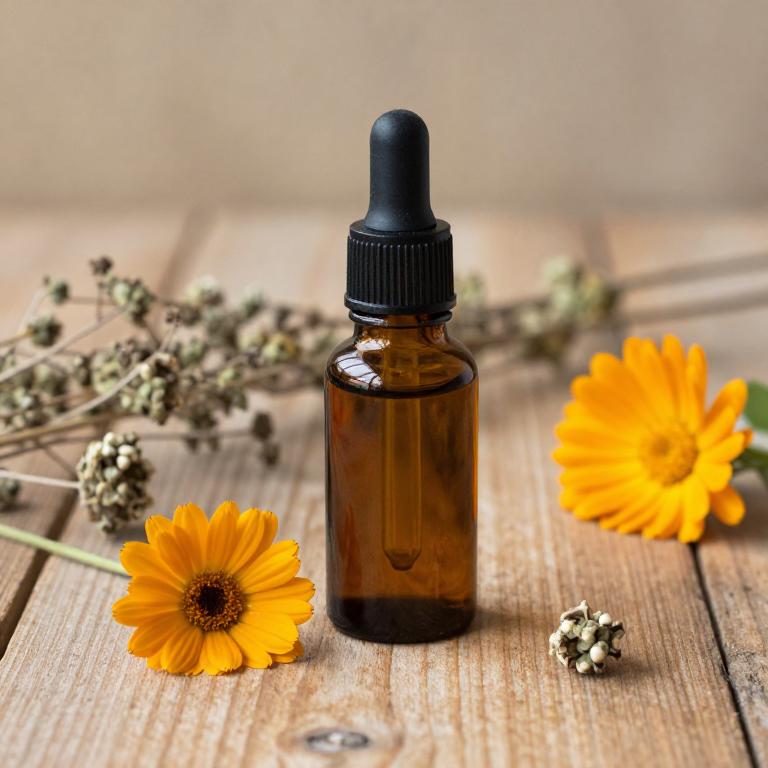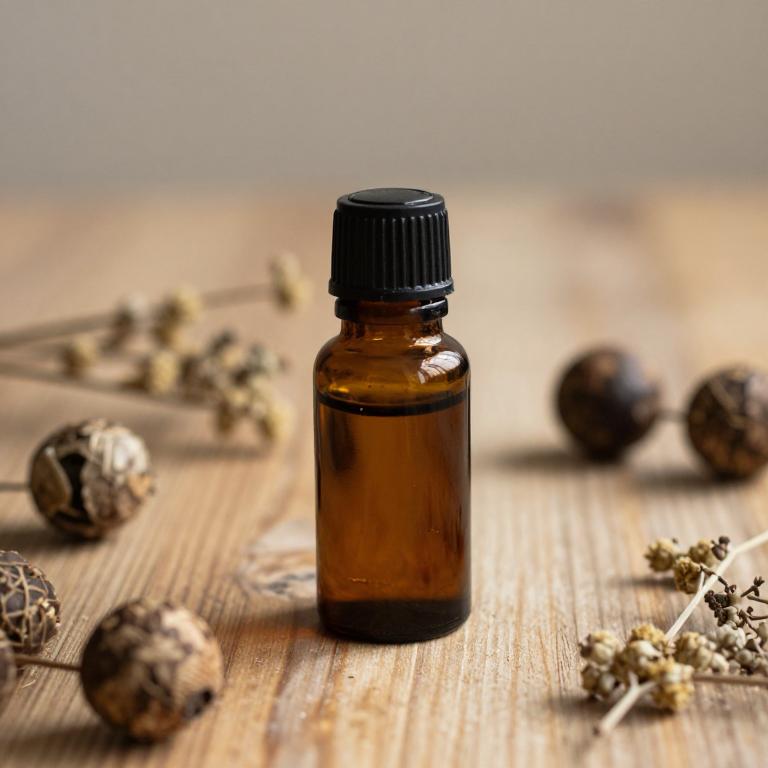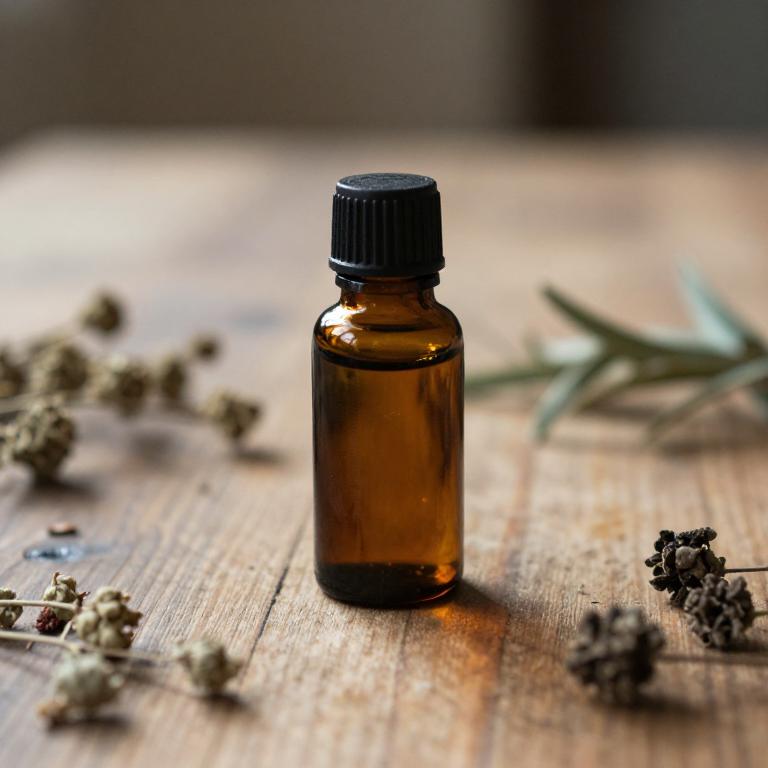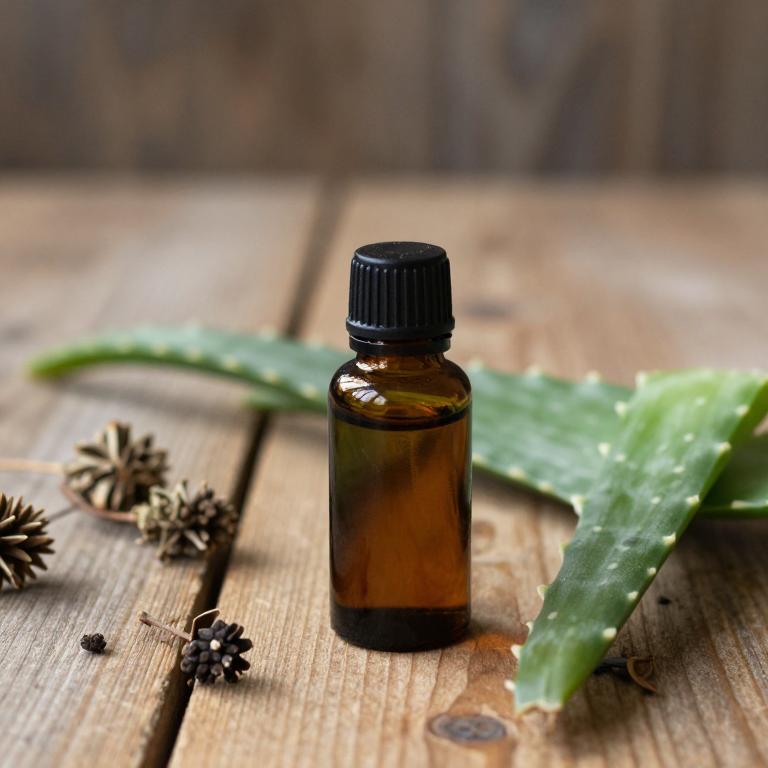10 Best Herbal Essential Oils For Dry Skin

Herbal essential oils are natural extracts derived from plants and are often used in skincare for their therapeutic properties.
For dry skin, oils like lavender, chamomile, and calendula are particularly beneficial due to their soothing and moisturizing effects. These oils can help reduce inflammation, promote skin healing, and enhance hydration when properly diluted in a carrier oil. They are a popular alternative to synthetic moisturizers, offering a more natural and holistic approach to skincare.
However, it's important to use them cautiously and consult a healthcare professional, especially for those with sensitive skin or allergies.
Table of Contents
- 1. Melaleuca (Melaleuca alternifolia)
- 2. Eucalyptus (Eucalyptus globulus)
- 3. Rosemary (Rosmarinus officinalis)
- 4. Marigold (Calendula officinalis)
- 5. Sandalwood (Santalum album)
- 6. English lavender (Lavandula angustifolia)
- 7. Lemon grass (Cymbopogon citratus)
- 8. Ceylon cinnamon (Cinnamomum zeylanicum)
- 9. Aloe vera (Aloe barbadensis)
- 10. Chaste tree (Vitex agnus-castus)
1. Melaleuca (Melaleuca alternifolia)

Melaleuca alternifolia, commonly known as tea tree oil, is a popular essential oil derived from the leaves of the Melaleuca alternifolia plant, native to Australia.
It is widely recognized for its antimicrobial, anti-inflammatory, and soothing properties, making it particularly beneficial for individuals with dry, sensitive, or irritated skin. When diluted properly with a carrier oil, tea tree oil can help alleviate dryness by reducing inflammation and promoting skin hydration. Its natural antiseptic qualities also make it effective in preventing infections in cracked or damaged skin areas.
However, it is important to use it cautiously and always perform a patch test to avoid potential allergic reactions.
2. Eucalyptus (Eucalyptus globulus)

Eucalyptus globulus, also known as blue gum eucalyptus, is a popular source of essential oil widely used for its therapeutic properties, particularly for dry skin.
The essential oil is extracted through steam distillation from the leaves of the plant and contains compounds like cineole, which have antimicrobial and anti-inflammatory effects. It can help soothe dry, irritated skin by promoting circulation and reducing inflammation. When diluted properly, it can be used in topical applications such as moisturizers or massage oils to provide a cooling and refreshing sensation.
However, it is important to perform a patch test before use, as some individuals may experience skin sensitivity or allergic reactions.
3. Rosemary (Rosmarinus officinalis)

Rosmarinus officinalis, commonly known as rosemary, produces an essential oil that is highly beneficial for dry skin due to its moisturizing and nourishing properties.
This essential oil contains compounds like camphor and cineole, which help to improve skin hydration and enhance blood circulation, promoting a healthier complexion. It also has anti-inflammatory and antioxidant effects that can soothe dryness and reduce irritation. When diluted properly, rosemary essential oil can be applied topically to alleviate the discomfort of dry skin.
Its refreshing aroma also adds a pleasant sensory experience to skincare routines.
4. Marigold (Calendula officinalis)

Calendula officinalis, commonly known as pot marigold, is a popular herb used in the production of essential oils that are particularly beneficial for dry skin.
The essential oil derived from calendula is known for its anti-inflammatory and antiseptic properties, which help soothe and protect dry, irritated skin. It can be used in topical applications such as massage oils, salves, or lotions to moisturize and repair the skin's barrier. Due to its mild and soothing nature, calendula essential oil is often recommended for sensitive skin and can be safely used in aromatherapy or as part of a skincare routine.
Incorporating calendula officinalis essential oil into skincare routines can provide long-lasting hydration and relief for dry, flaky skin.
5. Sandalwood (Santalum album)

Santalum album, commonly known as sandalwood, is a revered herbal essential oil that is particularly beneficial for dry skin due to its rich composition of moisturizing and soothing compounds.
This essential oil is derived from the heartwood of the sandalwood tree through a steam distillation process, which preserves its natural properties. Santalum album has a calming and woody aroma that not only provides a pleasant sensory experience but also helps to reduce inflammation and irritation in dry, sensitive skin. Its emollient properties help to soften and hydrate the skin, making it an excellent choice for those suffering from dryness, flakiness, or eczema.
When used in massage oils or skincare formulations, Santalum album can enhance skin elasticity and promote a smooth, healthy complexion.
6. English lavender (Lavandula angustifolia)

Lavandula angustifolia, commonly known as English lavender, is a widely used herb in aromatherapy and natural skincare due to its calming and healing properties.
Its essential oil is particularly beneficial for dry skin because it contains compounds that help to soothe irritation and promote skin regeneration. The oil's anti-inflammatory and antimicrobial properties make it effective in reducing redness and preventing infections in sensitive or compromised skin. When diluted properly, lavender essential oil can be safely applied to dry skin to provide moisture and a sense of relaxation.
It is often incorporated into lotions, balms, and bath products to enhance hydration and overall skin health.
7. Lemon grass (Cymbopogon citratus)

Cymbopogon citratus, commonly known as lemon grass, is a valuable source of herbal essential oils that offers numerous benefits for dry skin.
The essential oil derived from this plant contains a high concentration of citral, which has antimicrobial and anti-inflammatory properties that help soothe and protect the skin. When applied topically, it can help hydrate and soften dry, flaky skin by improving skin texture and promoting a more balanced moisture level. Its refreshing aroma also provides a calming effect, making it a popular ingredient in natural skincare products.
However, it is important to dilute the essential oil properly before use to avoid irritation, especially for those with sensitive skin.
8. Ceylon cinnamon (Cinnamomum zeylanicum)

Cinnamomum zeylanicum, also known as cinnamon bark, is a popular source of herbal essential oils that can be beneficial for dry skin due to its warming and nourishing properties.
The essential oil derived from this plant contains compounds like cinnamaldehyde, which have antimicrobial and anti-inflammatory effects that help soothe irritated skin. When diluted properly, cinnamon essential oil can be applied topically to improve circulation and enhance skin hydration, making it a valuable addition to moisturizing routines. However, due to its strong scent and potential for skin irritation, it should always be used with a carrier oil and tested on a small area first.
Overall, cinnamon essential oil can be a natural and effective remedy for those seeking to alleviate dryness and promote skin health.
9. Aloe vera (Aloe barbadensis)

Aloe barbadensis, commonly known as aloe vera, is a versatile plant that has been used for centuries for its soothing and healing properties.
Its essential oils, derived from the gel of the plant, are particularly beneficial for dry skin due to their moisturizing and anti-inflammatory effects. These oils contain a variety of nutrients, including vitamins, enzymes, and amino acids, which help to nourish and repair the skin's natural barrier. When applied topically, aloe barbadensis essential oils can reduce redness, improve skin elasticity, and promote a more even skin tone.
Regular use of these oils can help to alleviate dryness, flakiness, and irritation, making them a valuable addition to a skincare routine for those with sensitive or dry skin.
10. Chaste tree (Vitex agnus-castus)

Vitex agnus-castus, commonly known as chaste tree, is often used in herbal remedies for its potential benefits for hormonal balance and skin health.
Its essential oils are valued for their calming and balancing properties, which can help soothe dry, sensitive skin. These oils contain compounds like linalool and lavandulol that have moisturizing and anti-inflammatory effects. When diluted properly, vitex essential oil can be applied topically to hydrate and nourish dry skin, promoting a more supple and radiant complexion.
However, it is important to perform a patch test and consult with a healthcare professional before use, especially for those with sensitive skin or existing skin conditions.